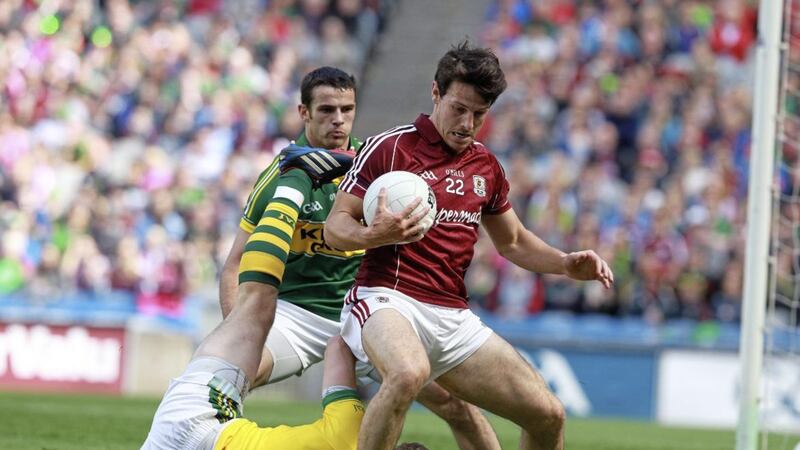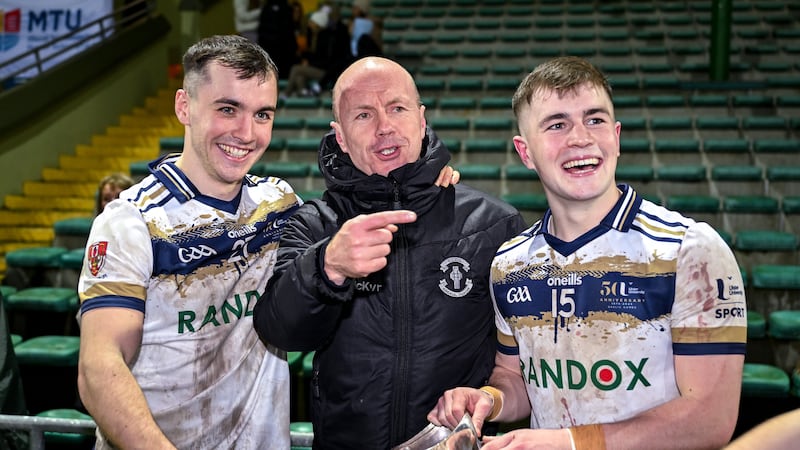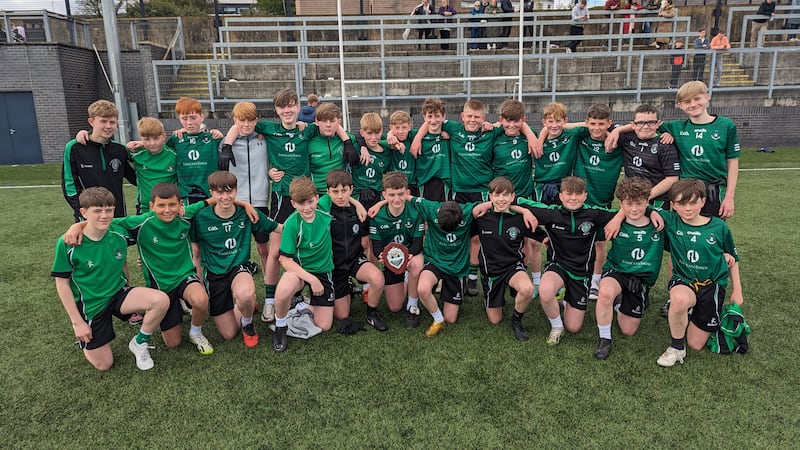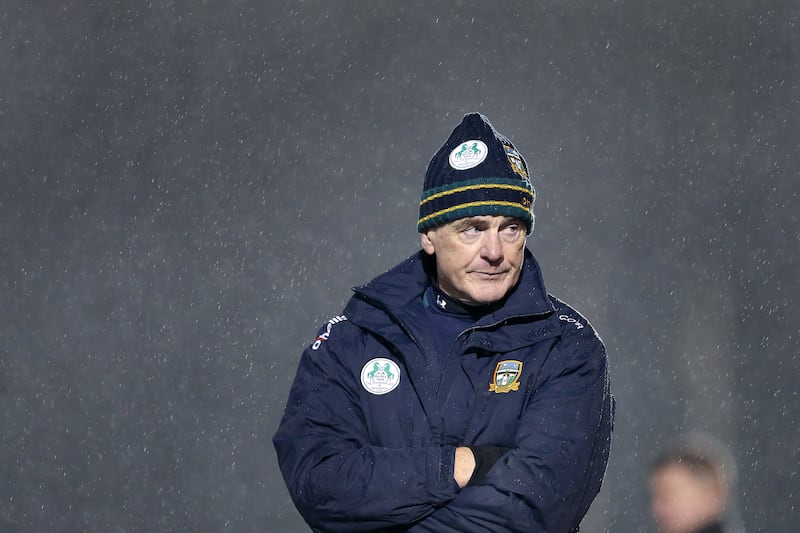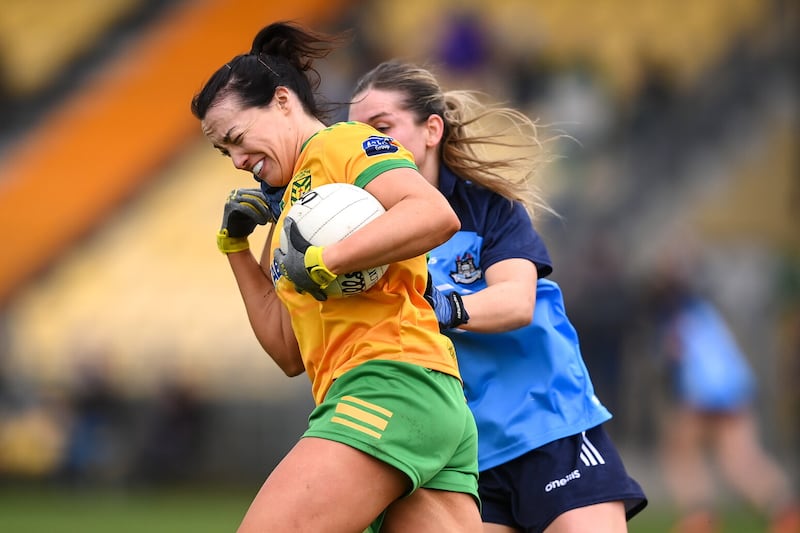SEAN Armstrong admits that Gaelic Football isn’t the spectacle it once was for fans.
The Galway star, who retired last week, says players still enjoy the game but conceded that spectators no longer flock to watch it like they did when his inter-county career began 13 years ago.
Salthill-Knocknacarra clubman Armstrong, a cousin of former Antrim and Northern Ireland World Cup star Gerry Armstrong, had 11 years in the maroon jersey of Galway (he missed the 2015 and 2016 seasons) and admits he had walked away with a heavy heart last week.
“I’m sad to be leaving the set-up,” he said.
“I enjoyed being back and I said to Kevin (Walsh, the manager): ‘I wish I was younger because I’d love to give it another couple of years’. There is a good bunch of lads there who are really hungry for success and I think there is more to come out of them.
“But I had to be honest with myself. I had a couple watershed moments where my body wasn’t able to do the things my mind wanted it to do. I found that very frustrating and come the summer time I knew I was coming towards the end of it.
“I found it hard to keep up with the pace of the game to be honest and there are younger lads coming through who are going to be better than me next year. I reckon I would have been sitting on the bench next year. I’m sad to be going but I just don’t think I’m good enough for it any more.”
Now 33, Armstrong found that preparing for, and recovering from, training sessions was taking up more and more of his time. By the end it was a physical and mental strain.
“It would take me 40-50 minutes to get warmed up to go out and train and it would take me two or three days to recover from a tough session whereas other lads where bouncing back and able to train flat out again,” he said.
“I’d have to be trying to mind myself. To make the team you need to be out training to show the management that you’re good to go and I just found it was getting harder all the time to be fit and ready to go.
“The minute you get up on the morning of a training day you’re thinking ‘right I need to get ready for training later’ and as your body gets older you’re prepping yourself as the day goes on – you get there earlier so you can see the physio or the masseuse, get your prehab done and stretching done…
“When you’re a young lad you can do that in your sleep and you don’t have to worry about it. It became mentally and physically fatiguing.”
Armstrong was a Connacht Championship winner (for the third time) with Galway this year and his final game was the All-Ireland semi-final against Dublin at Croke Park. Galway started brightly but the Dubs reeled them in and advanced to the final after a nine-point win.
“Dublin are the benchmark,” he said.
“They want to be known as the best team of all time and to do that they have to do the five in-a-row so the pressure is going to be on them next year more than ever. They’ll be going flat-out to win and if you are looking at a team to take Dublin down I think you’re looking at Tyrone or Kerry who have a lot of good players coming through.
“I don’t think Galway are that far off it. In the first half (of the semi-final) we missed a few chances and if we had gone in ahead at half-time – which I think we should have – it might have been a different second half.
“I don’t think that Galway team have any fear of Dublin, or anybody else and that’s why I’m sad to be leaving them because there’s definitely more in that team. They’ve got a little taste of getting to the top four, which was our goal at the start of the year, and they’ll be revaluating their objectives for next year.”
Armstrong first came to the attention of GAA fans across the country as part of the Galway side that beat Down to win the 2005 All-Ireland U21 title. He scored 3-1 that day while the equally talented Michael Meehan finished with 3-2.
The following year he was an All-Ireland Senior Club Championship winner with Salthill-Knocknacarra after their 0-7 to 0-6 win over Antrim and Ulster champions St Gall’s.
Since then, football has become increasingly tactical and safety-first and Armstrong senses that fans are beginning to vote with their feet.
“Players enjoy it, if they didn’t they wouldn’t do it,” he said.
“I think for spectators it’s not as enjoyable to watch anymore which is an issue. The GAA is there to entertain people but as a player you become enthralled in the tactics and the systems, it’s what you work on in training and you really enjoy getting the defensive systems and your tactics right.
“But from a spectators’ point of view it’s not as fluid, it’s not as attractive on the eye as it used to be.
“I would love to see it become more attractive to watch, but I don’t know what the answer is. Maybe 13-a-side? Or do you go to the Aussie Rules where a handpass has to be followed by a kick pass?
“They should use the FDB Leagues and the McKenna Cups to trial things and see how they get on.
“There is room for improvement by changing a couple of rules.”
As for his links to Tyrone and Northern Ireland football royalty, Armstrong explained that his father (Sean) and Gerry Armstrong are first cousins.
“My grandfather John and Gerry’s father, Gerry senior, were brothers,” he said.
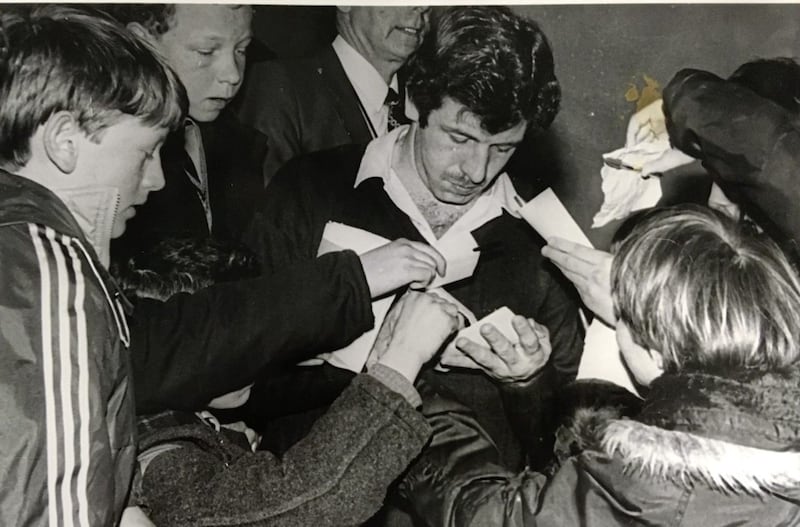
“My grandfather moved from Fintona to Galway and married a Clare woman and they moved to the States. They came back in the early 1960s and set up in Salthill. My dad was reared in Salthill but he used to spend a lot of his summers up in Fintona.
“I would always have known about Gerry and the World Cup. I’ve met him a couple of times and I would always have been aware of the star that Gerry was.
“I know he was a very talented footballer but I’m sure, when he looks back, he knows he made the right decision to go and play soccer after all the success he had.
“I stopped playing soccer when I was 16 but I played for Galway and Connacht schoolboys and had an Ireland trial or two but I was never that good at it. Football was always my better sport for sure.”
